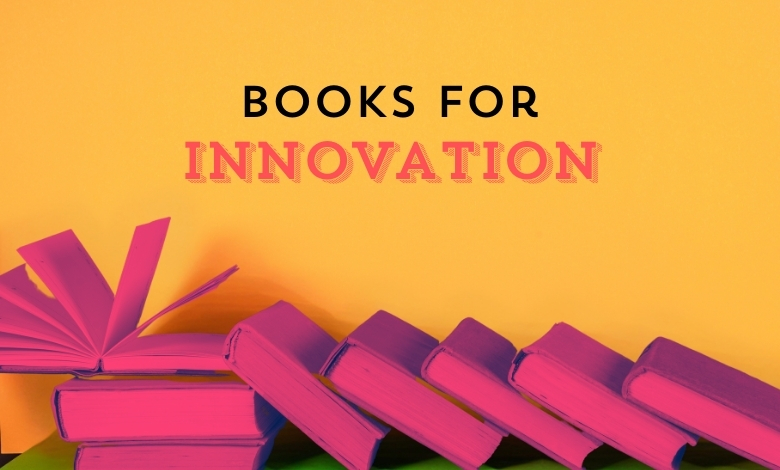Explore the 7 must-read books for innovation in 2024, designed to inspire and unleash your creative genius.
Being a passionate reader and entrepreneur, I have always been astounded by the force of ideas and their capacity to transform the world.
My path into invention started off by accident.
I had a difficult challenge at work a few years back.
I then came onto a book that fundamentally altered my viewpoint.
It brought to me hitherto unconsidered innovative thinking and problem-solving possibilities.
That moment marked a turning point in my search for and reading of books challenging my ideas and motivating fresh approaches to address difficult daily tasks.
Reading and playing with concepts from some of the most powerful books on invention has taken many hours.
This has affected both my personal and occupational spheres.
I want to present you a list of the seven best books that have most affected my path toward invention.
These books will provide you the insights and skills to improve your thinking regardless of your level of entrepreneurship, creative vocation, or simple desire to ignite your inner genius.
Quick Overview: Best Books for Innovators
Let’s get started.
Article Breakdown
Why Reading Innovative Books is Essential?

Reading innovative books not only increases your knowledge but also helps you to change your perspective.From thought leaders, disruptors, and pioneers who have deftly negotiated the challenging terrain of innovation in business, these books offer a lot of material.
Immersion in these stories will help you to find useful techniques, avoid frequent mistakes, and deepen your knowledge of how to carry out innovative ideas in your own life or company.
The Power of Books for Innovators: How They Can Ignite Your Inner Genius
Books have a special ability to inspire and instruct. For inventors, they are a storehouse of ideas, techniques, and case studies ready to inspire success and stimulate innovation.
By sharing their experiences, studies, and ideas, the writers of these best invention books provide readers with a road map to maximize their own ingenuity.
Let’s see our top picks for the greatest 2024 books on innovation.
Top 7 Books on Innovation
1. Loonshots
“Loonshots” looks at how encouraging unusual ideas—loonshots—might result in historic discoveries. Physicist and entrepreneur Safi Bahcall explores the physics behind why effective teams reject outstanding ideas and how to get beyond this obstacle. Anyone who wants to encourage creativity will find great appeal in this book since his observations come from physics, biology, and history.
As I read “Loonshots,” the idea of “phase transitions” in businesses caught my attention—a notion Bahcall relates to the changes water experiences as it transforms to ice or steam. This comparison made the delicate balance needed to preserve a conducive climate where radical ideas can blossom in a clear-cut sense.
2) Creative Construction
Gary P. Pisano’s “Creative Construction” offers businesses looking for ongoing innovation a road map. Successful innovation, he contends, requires not only great ideas but also constant improvement and adaptation skills. Pisano provides useful guidance on controlling risks, encouraging creativity, and expanding fresh ideas.
This book really spoke to me since it underlined the need of including creativity into the center of a company. Using Pisano’s ideas helped me build an adaptive and strong team.
3) The Future Is Faster Than You Think (Our Editors Pick)
In “The Future Is Faster Than You Think,” Diamandis and Kotler examine how convergent technologies including digital biology, robotics, and artificial intelligence are hastening transformation in many sectors. The book presents a convincing picture of the near future and ideas for using these technologies to spur creativity.
Reading this book opened me. The writers’ hopeful view of technology’s ability to address world issues motivated me to see more broadly and investigate how newly developed technologies might be applied in my own work.
4) Experimentation Works
“Experimentation Works” by Stefan H. Thomke emphasizes how important tests are to fostering corporate innovation. Thomke shows how businesses could test fresh ideas, learn from mistakes, and finally flourish by means of experimentation. The book is overflowing with case studies from top firms who have effectively embraced an experimental culture.
Using the ideas from “Experimentation Works” changed my project management style. I began to see mistakes as useful teaching moments that greatly enhanced our creative output.
5) The Invincible Company
“The Invincible Company” offers a thorough manual for creative business model development. Using frameworks and resources available to companies, Osterwalder and his co-authors show how they may constantly reinvent themselves. Many case studies and graphic tools in the book help to make difficult ideas understandable and doable.
Especially helpful was the visual structure for business models in this book. It helped me to plan out and see our present company strategy, spot areas of weakness, and investigate fresh creative possibilities.
6) Humanocracy
“Humanocracy” calls for a more human-centric approach and questions established hierarchical organizational systems. Empowering staff members and flattening organizational structures, according to Hamel and Zanini, can boost creativity and output. The book provides doable guidelines for building companies as creative as their employees.
“Humanocracy” made me reevaluate our system of governance. Following some of the book’s recommendations helped us to establish an inventive and inclusive workplace in which everyone’s views were appreciated.
7) Lean Impact
Ann Mei Chang uses lean startup ideas in “Lean Impact,” for the social sector. The book offers organizations and social entrepreneurs a structure for efficiently innovating and scaling their influence. Chang stresses the need of testing, tracking outcomes, and iteratively depending on input.
For our nonprofit projects, “Lean Impact” was a revelation. Using lean concepts let us rapidly test new ideas, learn from our mistakes, and effectively maximize our social impact.
Final Thoughts
Innovation is an ongoing trip of inquiry, education, and adaptation. Anyone trying to unleash their inner genius and inspire significant change will find great value in the books underlined in this page. Engaging yourself in the knowledge and experience of these thought leaders can help you to get fresh ideas and useful techniques to succeed in your creative activities. Recall that the secret to inspiring creativity is not only in reading but also in using the insights and boldly moving forward to realize your imaginative ideas.
Frequently Asked Questions (FAQs)
1) What defines a good book on innovation?
Usually, a good book on innovation provides analysis of fresh ideas, techniques, or products that challenge established wisdom. It offers readers concepts, case studies, and doable tactics that could motivate and direct them toward putting creative ideas into use in their domains.
2) Why should I read books about innovation?
Reading books about innovation will enable you to grasp the most recent trends, approaches, and success stories from many fields. Essential for both personal and professional development, they can improve your creativity, problem-solving abilities, and capacity for original thought.
3) How can books on innovation help businesses?
Books on innovation can be of use to companies since they provide ideas for how to keep competitive, simplify procedures, and build a creative culture. They offer instances of successful ideas and useful guidance on putting fresh concepts into use.
4) What is the difference between innovation books and innovation textbooks?
Usually more easily available and written for a general readership are innovation books. Their main priorities are motivating and enlightening readers on fresh ideas and trends. Conversely, innovation books are more scholarly and regimented, usually utilized in classrooms to offer in-depth knowledge and techniques.
5) Are innovative books only for entrepreneurs and business leaders?
No, everyone interested in both personal and professional growth will find great value in innovative literature. Students, teachers, researchers, and everyone else trying to embrace a creative and always improving attitude can all profit from them.
6) What topics are commonly covered in great books on innovation?
Excellent books on innovation generally address subjects including design thinking, disruptive technology, creative problem-solving, entrepreneurship, and tactics for encouraging an inventive culture inside companies.
7) How do best books on innovation remain relevant over time?
The best books on invention remain relevant by tackling basic ideas of creativity and problem-solving that cut beyond particular trends. They sometimes feature classic case studies and flexible models that readers can adopt independent of shifting market conditions.



